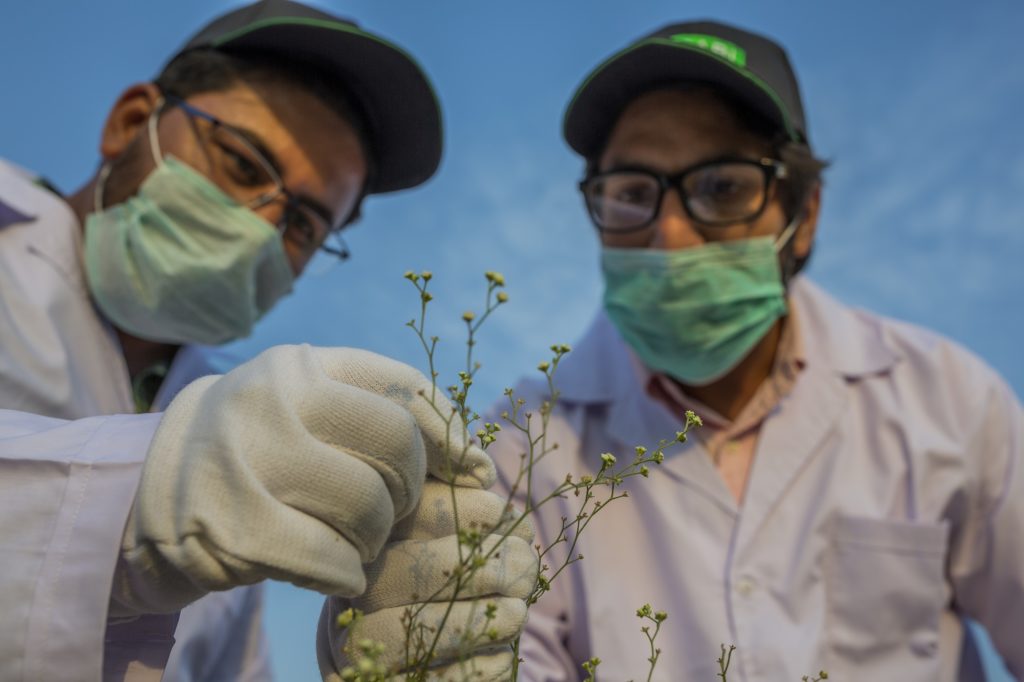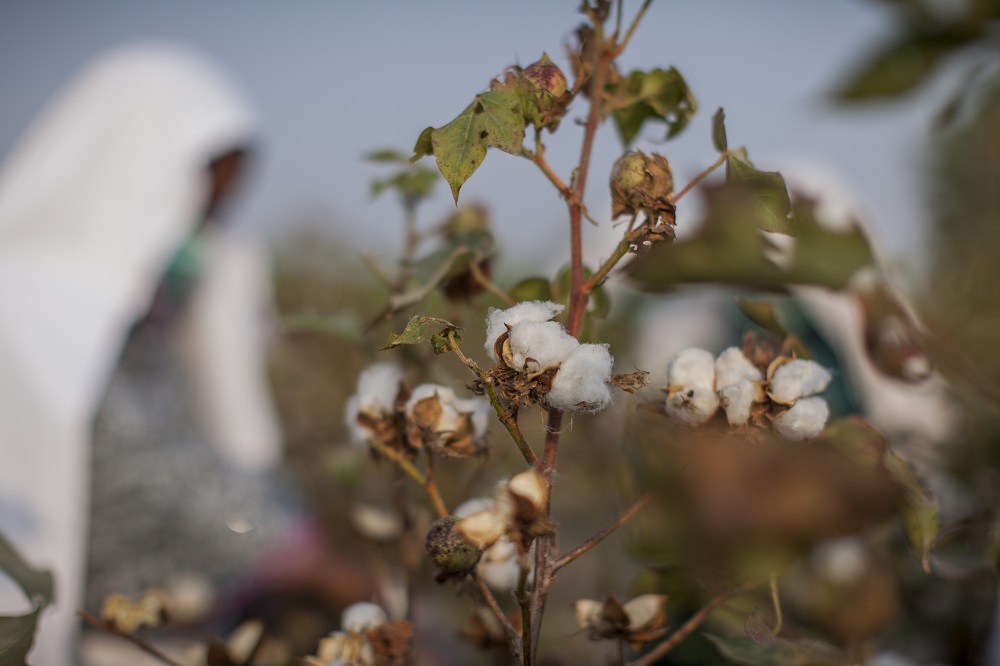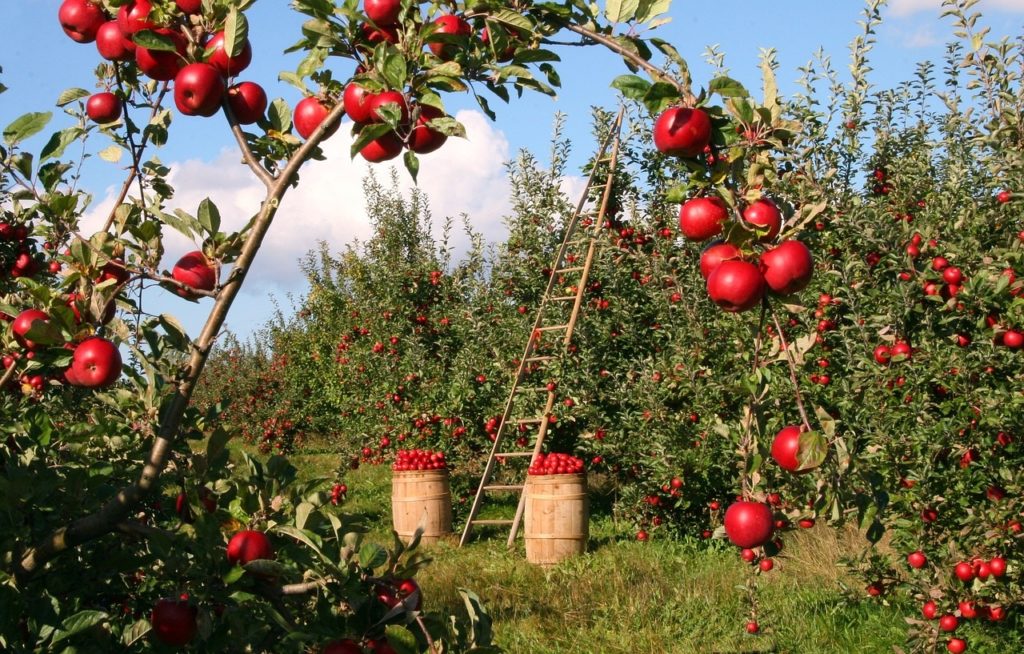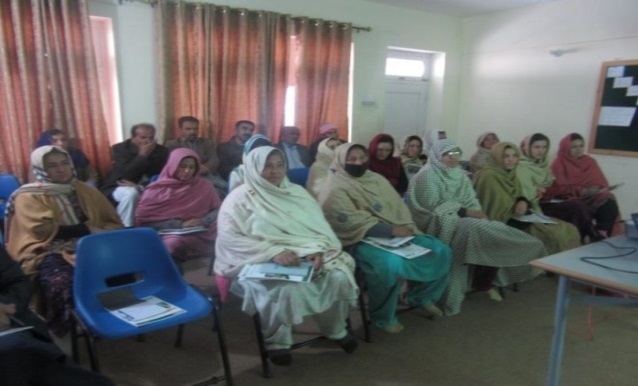Guest blog: ‘Keeping in mind the real use of our research’
In this guest blog, Dr Haseeb Md. Irfanullah discusses the findings of a recent workshop he was a rapporteur of in Bangladesh on the potential impact on policy and practice of agricultural research in the country. A research system is basically made up of four components: accessing, conducting, communicating, and utilizing research. While we often…
In the frame: fighting the scourge of parthenium weed in Pakistan
CABI has recently shared its expertise in a new parthenium evidence note which highlights a list of recommendations to fight the highly-invasive weed can cause severe allergic reactions in humans and livestock, may harbour malaria-carrying mosquitoes, displace native plant species and reduce pasture carrying capacities by as much as 80% to 90%. In this picture…
‘Sowing the seeds’ for better cotton crops: a farmer case study
Cotton is Pakistan’s largest industrial sector and is a principle cash crop to millions of smallholder farmers who rely upon it to earn their livelihoods. However, per acre yield and the profitability of the crop is dependent upon the quality of the sown seed as part of the principles of Good Agricultural Practices (GAPs) and…
Phytosanitary Risk Management team share expertise at ESCON 2019
An entomologist from CABI’s Phytosanitary Risk Management (PRMP) team has participated in the International Conference on Environmental Toxicology and Health (ESCON 2019) held in Islamabad, Pakistan. Muzammil Farooq, representing the PRMP team, participated in the event – organized by the Department of Environmental Sciences, COMSATS University (CUI), Vehari campus – by giving a presentation entitled…
Reaping the harvest: Sustainable tea production in India picture special
Recently CABI scientists revealed that India’s tea – which accounts for around 27 percent of the world’s tea production and where in 2016 exports of 232.9 mn kg were worth Rs 4,493 crore, could be protected from devastating crop pests with more environmentally-friendly and sustainable biological controls rather than an over reliance on pesticides. In…
Trichogramma evanescens, a biocontrol agent to control apple codling moth in apple orchards – first record from Pakistan
Apple codling moth and apple spider mites are one of most serious pests of different fruits, especially its deleterious effects on apple trees, which poses economic threat to apple production in the region. Codling moth was recorded as the most serious insect pest of the apple industry in Balochistan when the project conducted a baseline survey in…
When a Hollywood star came to CABI
The online market place goliath, and newly emerging leader in film and TV programme production, Amazon, visited CABI’s centre in Egham, UK to shoot footage for a new Amazon Prime Original series called This Giant Beast that is the Global Economy. The globe-spanning docuseries brings the smart, stylized storytelling of Adam McKay’s The Big…
Can a ‘diet’ of digital data really help feed the world?
Last week (29 January 2019) CABI was awarded a $1.49 million grant from the Gates Foundation to work with them to help increase food security in India and Ethiopia through better access to data on soil health, agronomy and fertilizers. In this blog Communications Manager Wayne Coles looks at whether or not the use of…
Fertilizer Optimization Tool helps return son to teacher training school
By Monica Kansiime, Scientist Seed Systems, based at CABI in Nairobi, Kenya In a previous blog post I outlined how the Fertilizer Optimization Tool (FOT) is paying dividends for farmers – helping them, in some cases, to report a seven-fold increase in their yields. Charles Wafula is a farmer and resident of Buhehe in Uganda who…
Empowering more women in the fight against fruit flies in Pakistan
More women in the Gilgit Baltistan (GB) region of Pakistan are benefiting from a Phytosanitary Risk Management Programme (PRMP) aimed at using a range of biological controls to fight the fruit fly pest which can impact heavily on rice and horticultural crops. PRMP, which is funded by USAID via United States Department of Agriculture (USDA), was initiated in…





